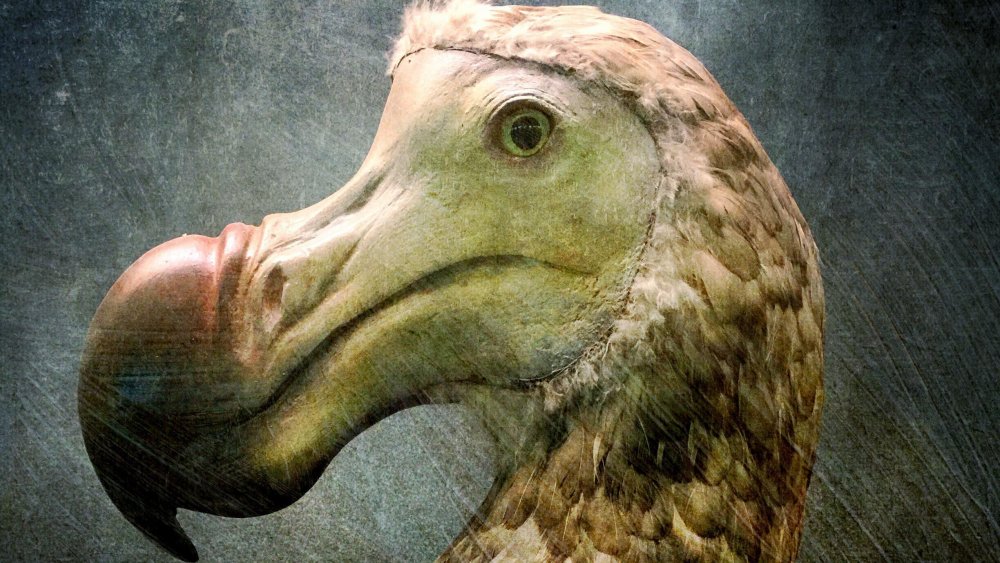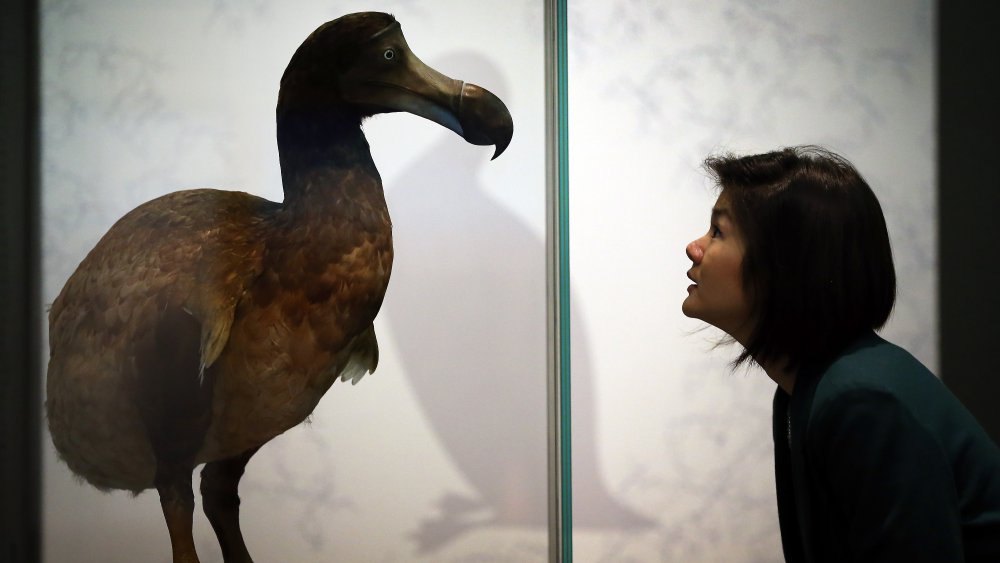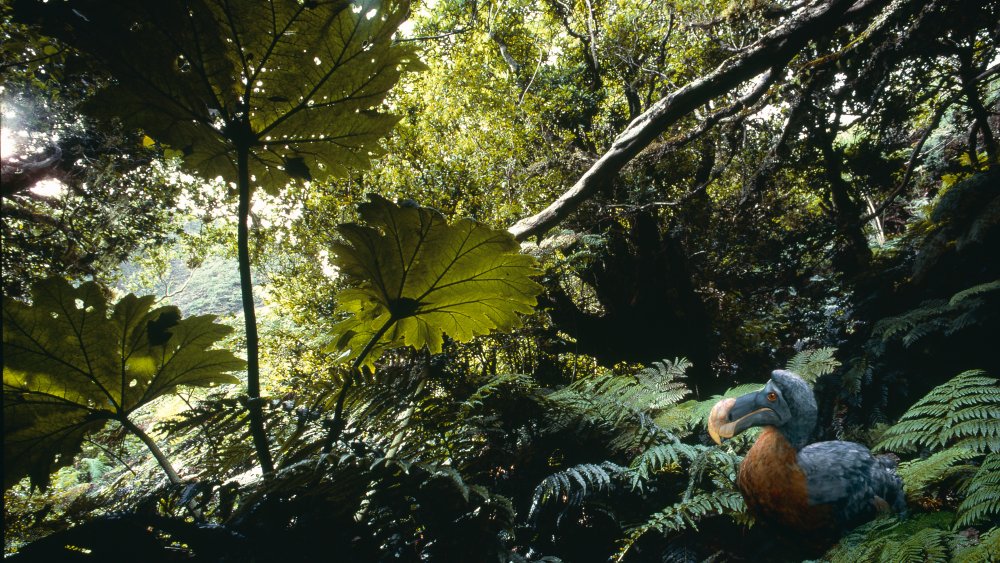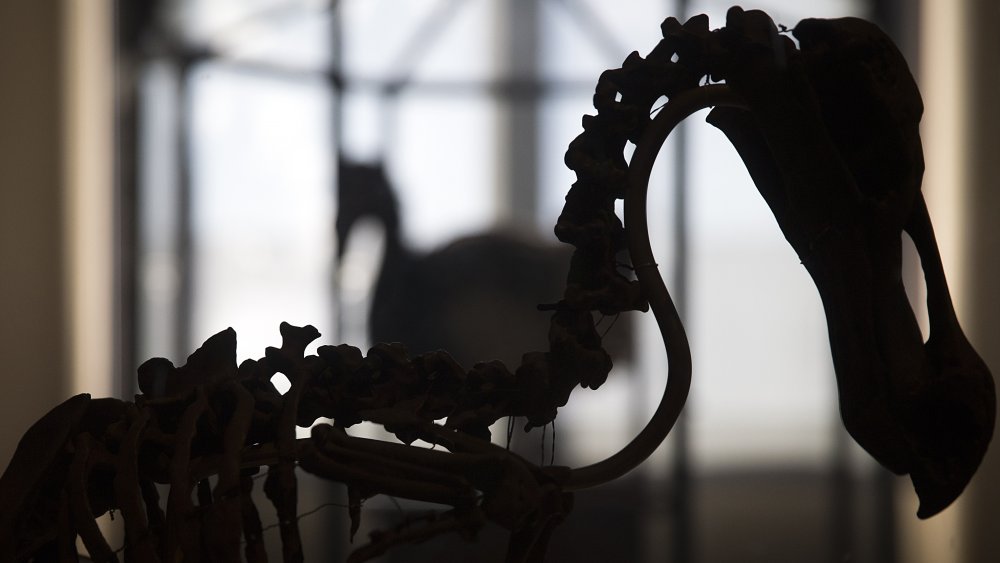The Reason Dodo Birds Went Extinct
If there's one thing most people know about the dodo bird, it's that they were dumb. Every Scantron test they took would be Christmas-treed, and had they not gone extinct, they would be the kind of personified creature to text, vape and change pants while driving.
As legend has it, this creature was only really ever a danger to itself — a true poster child for The Darwin Awards... at least, that's the story we've been fed. But apparently, the story of the guileless dodo hunted to extinction may be a load of doodoo.
Leon Claessens, who is now a Professor of Vertebrate Paleontology and Evolution at the Netherlands' Maastricht University, believes the Dutch sailors who first encountered the bird in 1598 did have an impact on dodo extinction, but more indirectly than previously thought.
Dodo: I've a feeling we're not in Mauritius anymore
Our image of a plump bird has been misconstrued, because the feathered fatties we've seen were likely overfed in captivity. In the dense jungles of Mauritius, the bird would have been much leaner, and therefore, not as appetizing of a meal as expected. Further, these jungles would have also made it much harder for the few hundred sailors to catch the birds, regardless of how unafraid they were of humans.
Claessens believes the real problem was the rats and other animals that would have landed with the sailors. These animals would have been able to multiply quickly in an unrestricted habitat, and would have feasted on dodo eggs and outcompeted them for food — a double-extinction whammy.
Another theories why the dodo don't dodo no mo'
Life was really just not on the dodo bird's side. Aside from being an easy food source for just about every predatory species imaginable, the species also endured rapid habitat loss. According to World Atlas, the island of Mauritius was not initially considered very valuable; just a place for ships to stop over. Some even thought the island was cursed due to a large amount of shipwrecks in the area.
That all changed when the Dutch realized they could export the island's ebony wood for sale, which became the island's primary economic activity. Not long after, settlers were turning the once-wild island into a big agricultural plantation, leading to heavy deforestation and loss of native plant species. The forest that provided natural protection for the dodo bird gave way to sugar cane fields, making the birds oversized sitting ducks. Hunting would be an overstatement, since the flightless birds were more curious about their potential killers than afraid. The dodos literally had no fight or flight reflex.
Lack of flight also made dodos ill-suited to surviving natural disasters. Evidence has been found that even before human settlement, many of the birds died in flash floods brought on by cyclones. Once they lost the natural protection of their sheltered forests, they became even more vulnerable.
The legacy of the dodo bird
The entry for "dodo" in the Oxford English Dictionary describes something that is "no longer effective, valid, or interesting," and the origin of the word comes from the Portuguese doudou, translating to "simpleton." It's a sad legacy for what was once a beautiful, totally innocent creature.
Beyond their Dumb and Dumber reputation, dodos are a symbol of how quickly and profoundly humans can impact an environment and drive a species to extinction. Until we can clone them, dodos are gone forever, and the best thing we can do about it is to learn from the mistakes of our ancestors.
It only took a hundred years to wipe out the dodo, and while exact dates of extinction vary, most believe the dodo was gone by the 1660's, with other reports claiming they lasted on nearby islands until the 1690's, according to NBC. In the grand scheme of things, it doesn't matter so much, because the bird, and just about every trace of it, is gone forever. All we've got are a few records and sketches from sailors, and one or two shoddily stuffed birds in museums.
We're hardly even sure what color they were. Most paintings from the time show dodos with white feathers, but firsthand accounts describe them with gray to black plumage. Heck, we didn't even know they had kneecaps until 2014, after a 3D scan of the last remaining skeleton.
In another hundred years, it's estimated that 25 percent of all bird species will be extinct in the wild unless we take big steps to clean up our act. If not, we'll be the real dodo-heads.



